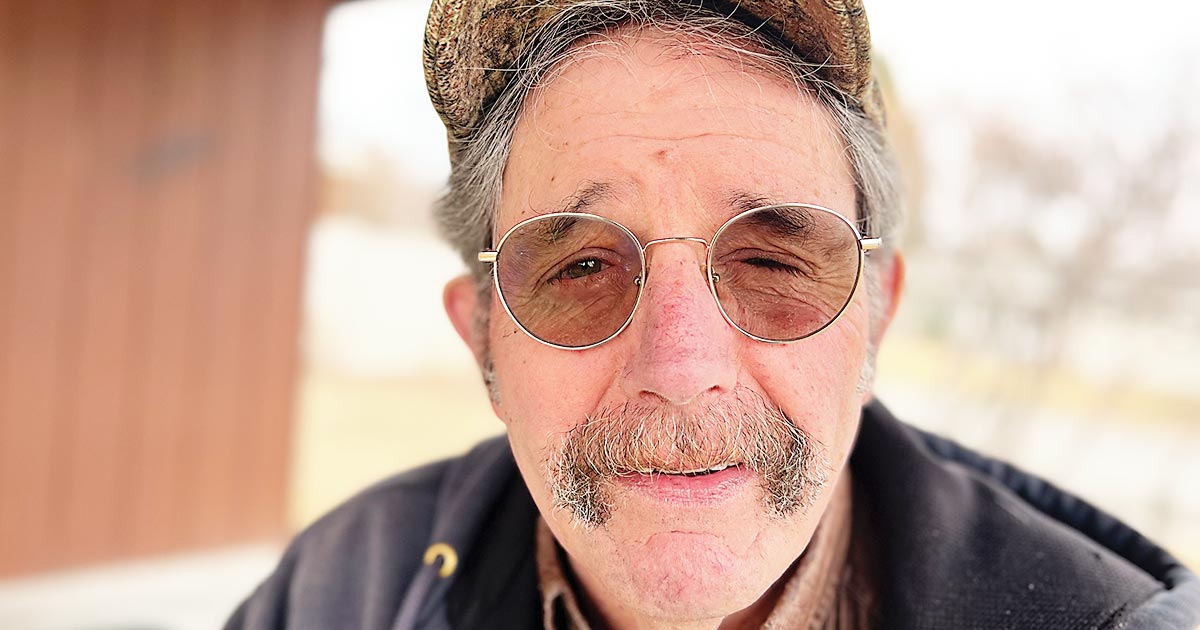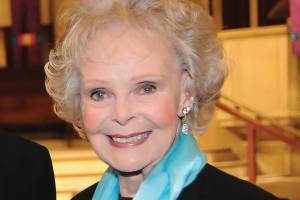By AARON PARRETT
Mike Korn says he’s done five lifetimes’ worth of living in his 70-something years on Earth. Most recently, he retired from 27 years in Montana working for Fish, Wildlife, and Parks, including time as a game warden.
But before that, and what brought him to Montana, was his work as a musicologist and folklorist. In the 70s and 80s, Korn archived folk music from Appalachia, put on folk and music festivals, helped start the cowboy poetry gathering in Elko, Nevada, and helped produce two seminal recordings of Montana musicians for the Arts Council. He also played a lot of music himself along the way.
Korn grew up in the San Fernando Valley outside of Los Angeles.
“My dad was an anthropology professor, and I took a degree in Anthropology Cal State Northridge in 1978.”
At college, Korn studied with Bess Lomax-Hawes, who was a professor at one of the schools where his father taught. She was, like her father John Lomax and brother Alan, an accomplished folklorist and song collector.
In 1977 Korn went to grad school at Western Kentucky University, where he continued his work with musicians and folklore. He became heavily involved with the collection and preservation of all kinds of American folk practices, including old-time and bluegrass music, as well as archiving authentic cowboy poetry, some of which dated back to the 1870s.
“There’s a long tradition of actual cowboys writing and reciting poetry,” Korn explained. “Some of these guys I worked with had been doing their own stuff since the 1920s or earlier.”
Accordingly, along with a group of other folklorists from western states, including Hal Cannon and Jim Griffith, Korn helped organize and start the Cowboy Poetry Gathering in Elko in 1985.
“We were all at a national meeting in DC in the early 1980s and sort of had an impromptu caucus in the Rose Garden,” he said. “We wanted to do some kind of folk festival with a real western flavor—that’s how we decided on cowboy poetry.”
Earlier, in the 70s, Korn worked in Virginia with Ralph Rinzler, famous for his own folk showcases and promotion of bluegrass and Appalachian folk acts like Lester Flatt and Earl Scruggs. In 1976, as part of the national bicentennial, Korn helped organize and present the Festival of American Folklife in Washington, DC.
“This was an amazing cultural event with all kinds of American folk musicians coming together outside the performances,” Korn said. “One evening at a jam session, a pretty famous mariachi fiddler from California, called Santa Claus (his stage name), walked up all dressed to the nines in his mariachi outfit, carrying a fiddle case, and [the great bluegrass banjo player] Ralph Stanley invited him to join the session. Ralph asked Santa, ‘Can you play that fiddle? You want to play with us?’ and Santa launched right into a blistering rendition of ‘Orange Blossom Special.’ Well, Ralph was so impressed he invited Santa up on stage with the Ralph Stanley Band the next day, saying ‘We’d like to invite a new friend we made last night to come up here and join us.’ That festival really was a memorable celebration of American diversity, in terms of music.”
A few years later, Korn arrived in Helena, Montana, where he landed a job as the state’s first folklorist, under the auspices of the Montana Arts Council. Under his tenure, The Montana Folklife Project produced a pair of LP phonograph records documenting some of the state’s finest folk musicians.
The first, When the Work’s All Done This Fall (1982), showcased western musicians from around the state performing authentic traditional cowboy songs. The second, If You Can’t Dance to It, It’s Not Old-Time Fiddle (1986), similarly captured live performances from some of Montana’s most important old-time dance musicians.
“When we recorded the great Metis fiddler, Alec Allery, at his niece’s house in Missoula, he played a Red River fiddle tune called ‘The Dying Cowboy.’ He was fiddling in the traditional way, stamping out the rhythm with his feet while he played, but his feet hitting the rug on the floor was just not coming through well in the recording—it was kind of a muddy thump. So, we went downstairs in the basement and found an old door off its hinges and brought that up and propped it up on the corners with a few books to keep it off the floor and had him play on top of that door,” said Korn. “You can hear how good it sounds on the record!”
Korn related one other memorable recording session in which they traveled off-grid, south of Rosebud Creek, to record Harold Sprague’s fiddling.
“Now, he lived out there with no electricity, so we had to bring a battery-operated outfit, and we just set up outside in the yard. What’s great about that recording (“When You and I Were Young, Maggie”) is between verses you can hear the meadowlarks singing in the background as he plays.”
Eventually Mike shifted gears from being a folklorist to working for the State of Montana in FWP.
“I worked a lot with landowners and ranchers, which came real natural to me from all the field work I did before,” Korn said.
After 27 years, he hung up that hat, too, and is now enjoying retirement.
“I pretty much get to do whatever I want, now,” he said. “And I am going to get back into playing music myself and playing the old tunes.” MSN








